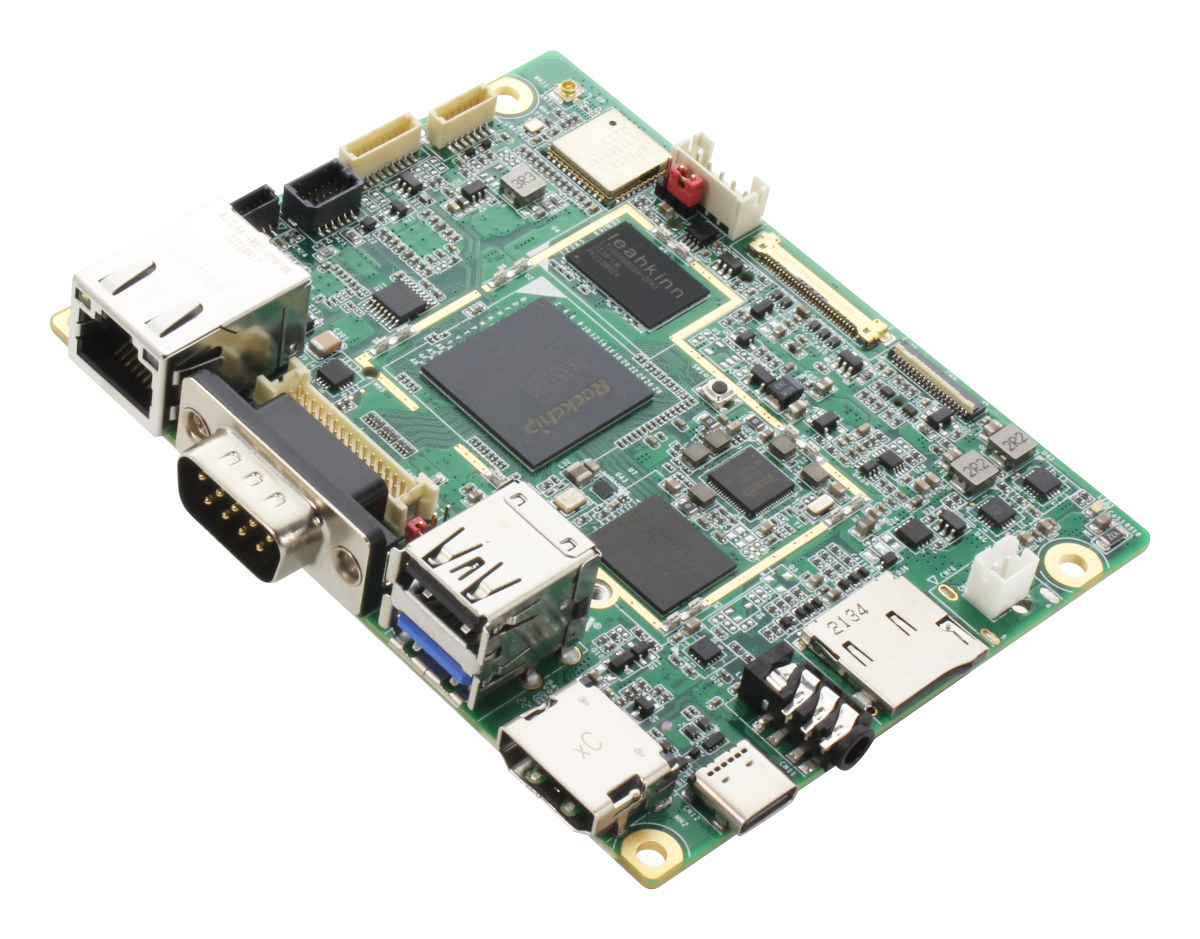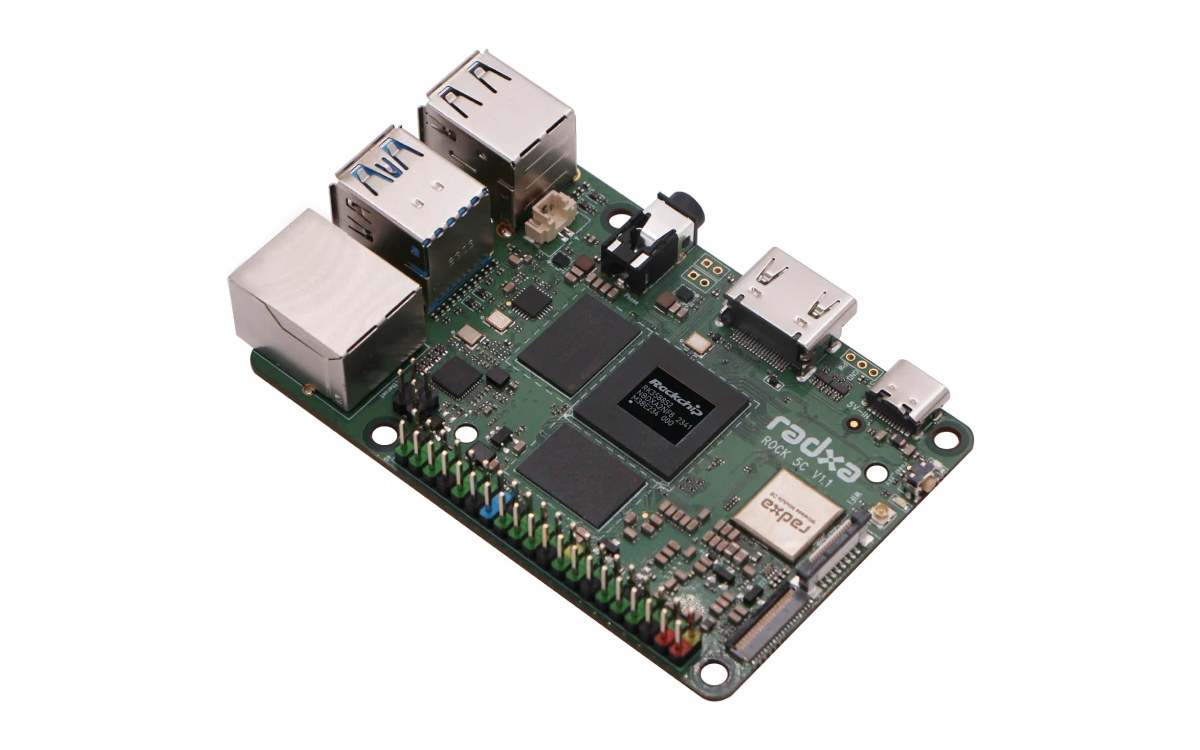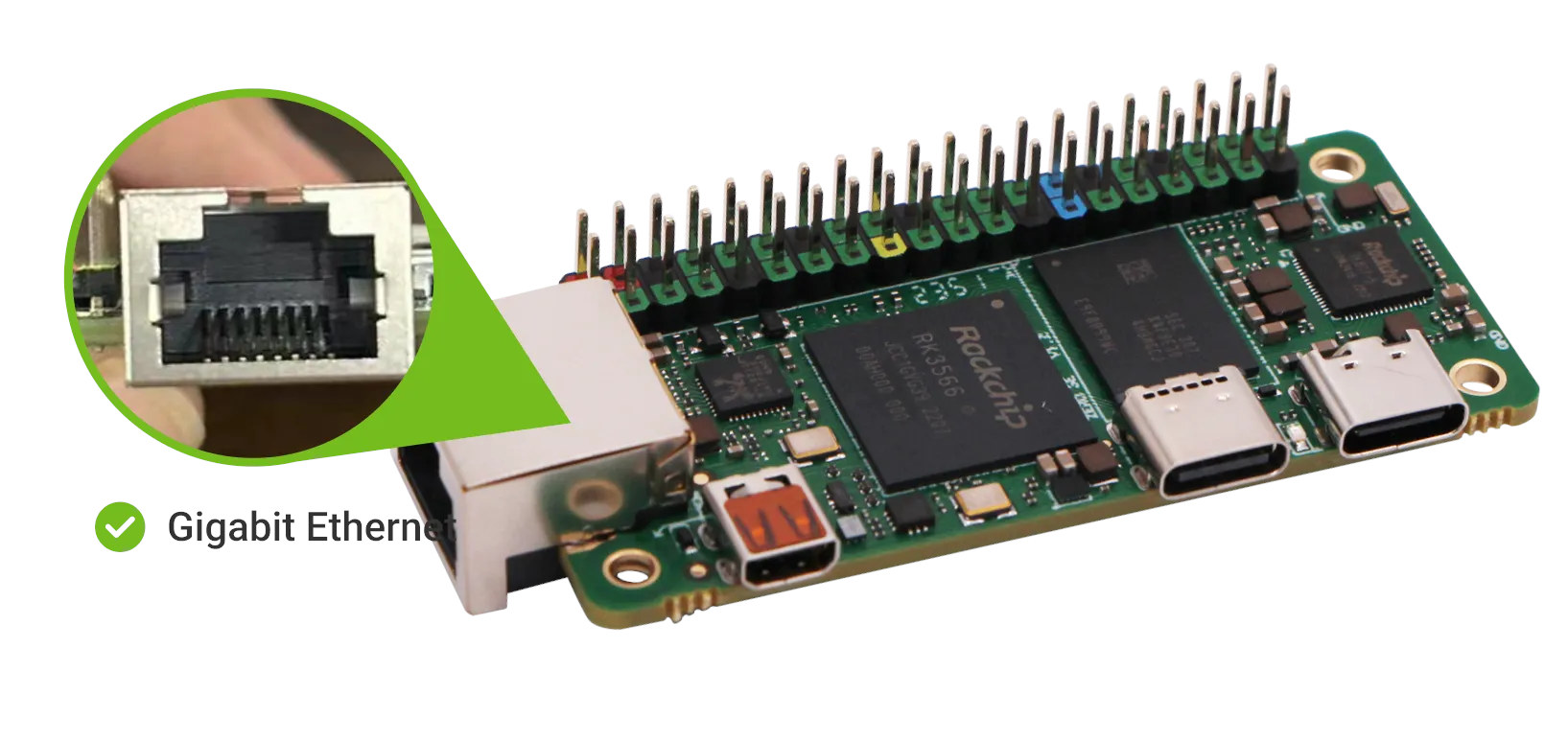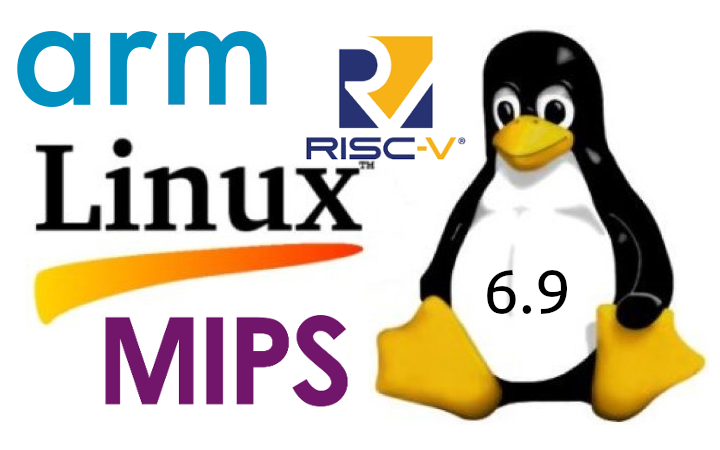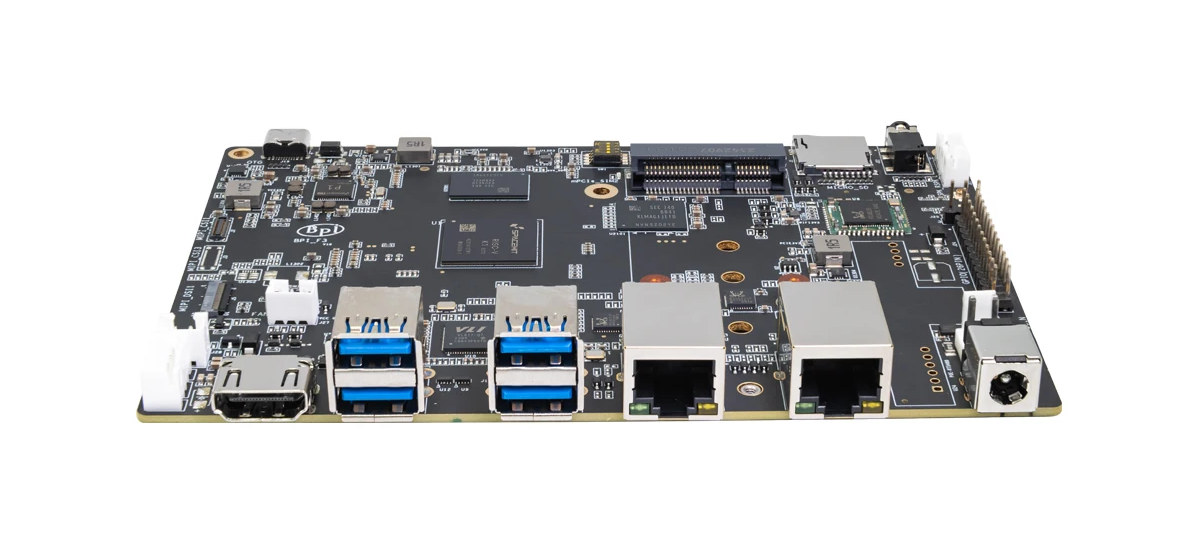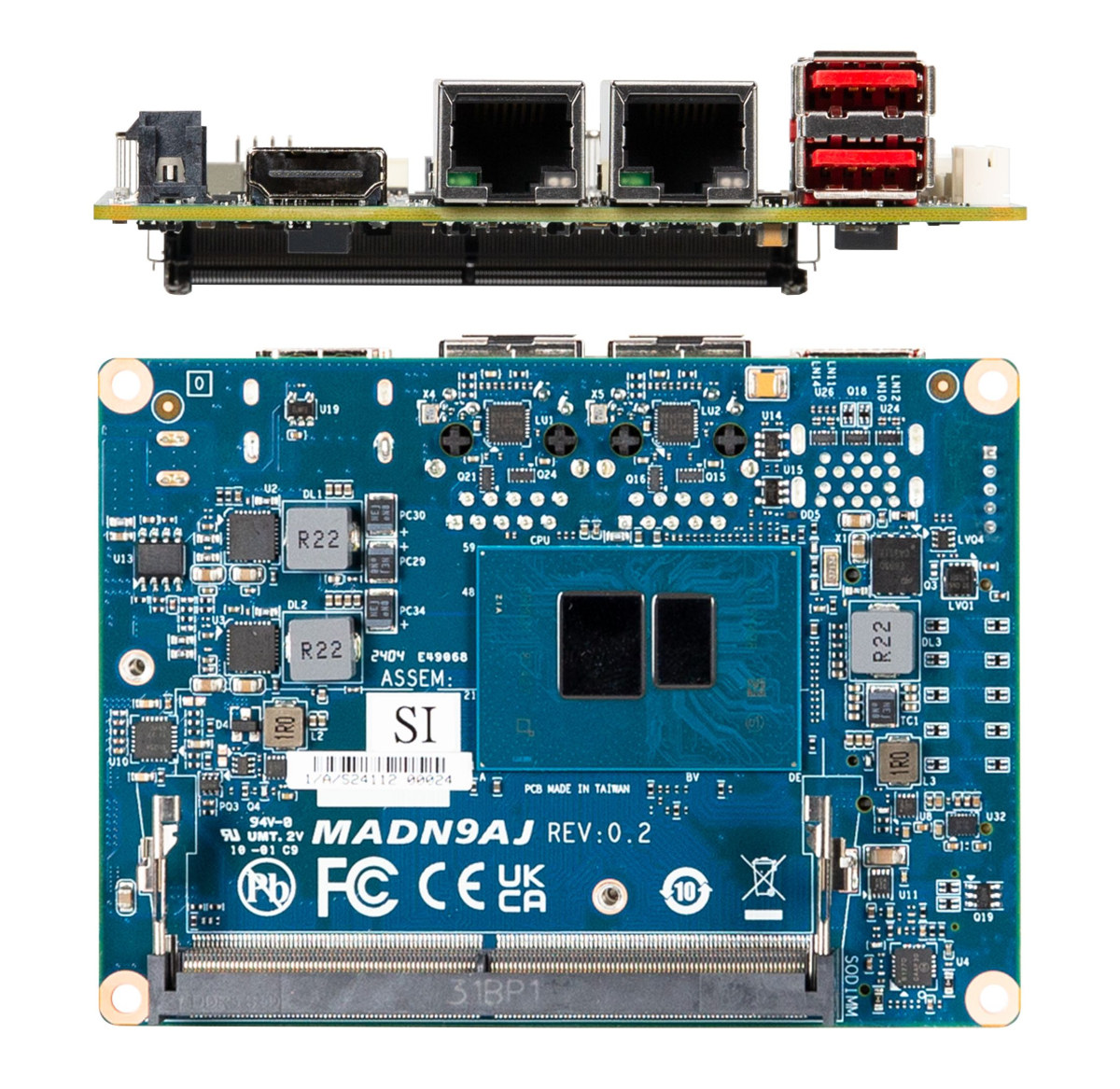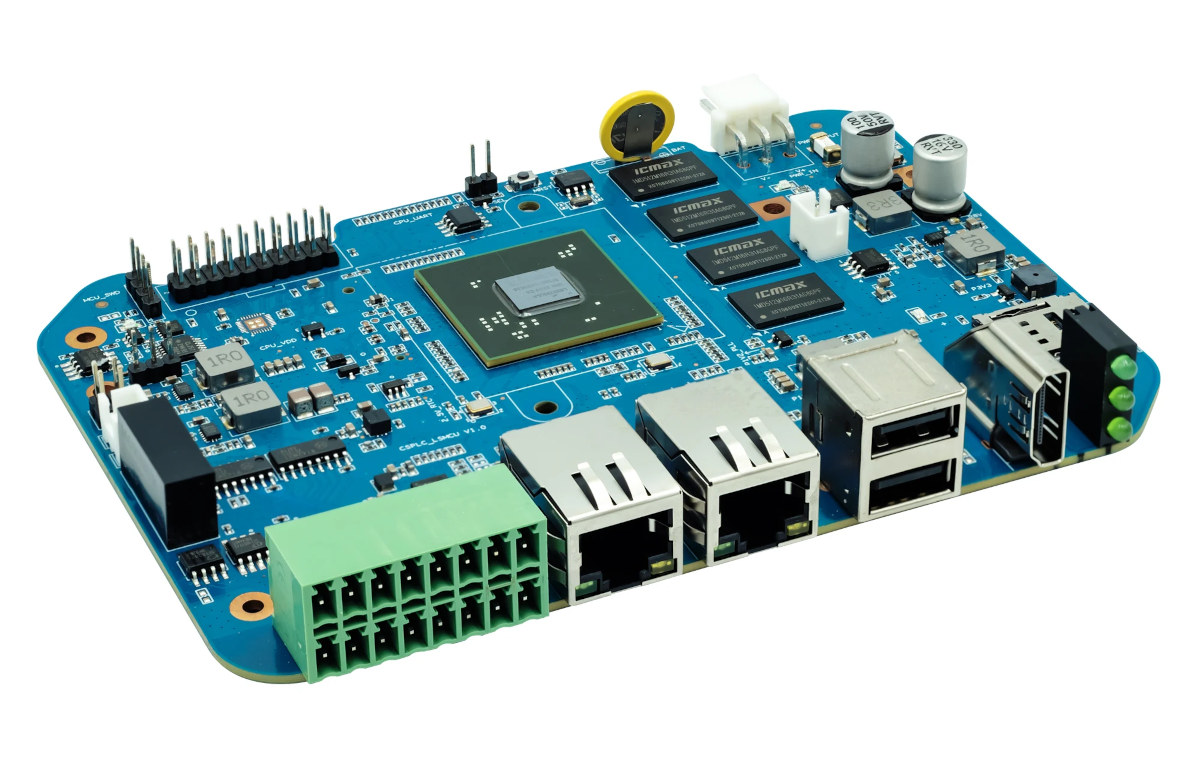AAEON RICO-3568 is a Pico-ITX Plus single board computer powered by a Rockchip RK3568 quad-core Cortex-A55 AI SoC, up to 8GB LPDDR4, 16GB eMMC flash, four display interfaces (HDMI, LVDS, eDP, MIPI DSI), gigabit Ethernet, and various expansion headers for industrial applications. Most have already heard about the Pico-ITX form factor, but it’s the first time I’ve ever come across a Pico-ITX Plus board. It looks like it’s an AAEON-specific “standard” right now, with the Pico-ITX Plus boards (100x80mm) being slightly wider than Pico-ITX SBCs (100x72mm). AAEON RICO-3568 specifications: SoC – Rockchip RK3568 CPU – Quad-core Cortex A55 processor at up to 2.0 GHz GPU – Mali G52 GPU with support for OpenGL ES 1.1/2.0/3.2, OpenCL 2.0, Vulkan 1.1 VPU 4Kp60 H.264, H.265, VP9, 1080p60 MPEG-4/-2/-1, VP8, and VC1 video decoder 1080p60 H.264/H.265 video encoder AI accelerator – 0.8 TOPS NPU System Memory – 2GB, 4GB, and 8GB LPDDR4 Storage […]
Radxa ROCK 5C (Lite) SBC features Rockchip RK3588S2 or RK3582 SoC, WiFi 6, Raspberry Pi PCIe FFC connector
First came the ROCK 5B pico-ITX SBC, then the Raspberry Pi 4-sized ROCK 5A board, and now Radxa has launched the Radxa ROCK 5C and 5C Lite single board computers powered by respectively Rockchip RK3588S2 octa-core and RK3582 hexa/octa-core “Lottery” processors. The ROCK 5C (Lite) design is very similar to the ROCK 5A, but there are some notable differences. First, it replaces the two micro HDMI ports with a single HDMI port, then it removes the Key M socket for M.2 wireless modules to make place for a built-in WiFi 6 and Bluetooth 5.4 module plus a Raspberry Pi PCIe FFC connector, and finally, the ROCK 5C does not support an SPI flash module anymore. The specifications of the ROCK 5C and ROCK 5 Lite SBC can be found in the table below. Both processors are new, so let’s have a look. First, how does RK3588S2 differ from RK3588S? They […]
Radxa Zero 3E SBC offers gigabit Ethernet and PoE in Raspberry Pi Zero 2 W form factor
Last December, we wrote about the Rockchip RK3566-powered Radxa Zero 3W WiFi 6 SBC and noted that the Radxa Zero 3E with gigabit Ethernet and optional PoE supports would be coming soon with about the same dimensions as the Raspberry Pi Zero 2 W. “Soon” is now as the Radxa Zero 3E is now available on Aliexpress or Amazon with RAM capacities from 1GB to 8GB LPDDR4. The small SBC also comes with optional eMMC flash up to 64GB, a microSD card slot for storage, a micro HDMI video output port, a MIPI CSI connector compatible with Raspberry Pi Camera V1 and V2, two USB-C ports, and a 40-pin GPIO header for expansion. Radxa Zero 3E specifications: SoC – Rockchip RK3566 CPU – Quad-core Arm Cortex-A55 processor @ 1.6 GHz GPU – Arm Mali G52-2EE GPU with support for OpenGL ES 1.1/2.0/3.2, Vulkan 1.1, OpenCL 2.0 NPU – 0.8 TOPS […]
Linux 6.9 release – Main changes, Arm, RISC-V, and MIPS architectures
Linus Torvalds has just announced the release of Linux 6.9 on LKML: So Thorsten is still reporting a few regression fixes that haven’t made it to me yet, but none of them look big or worrisome enough to delay the release for another week. We’ll have to backport them when they get resolved and hit upstream. So 6.9 is now out, and last week has looked quite stable (and the whole release has felt pretty normal). Below is the shortlog for the last week, with the changes mostly being dominated by some driver updates (gpu and networking being the big ones, but “big” is still pretty small, and there’s various other driver noise in there too). Outside of drivers, it’s some filesystem fixes (bcachefs still stands out, but ksmbd shows up too), some late selftest fixes, and some core networking fixes. And I now have a more powerful arm64 machine […]
Banana Pi BPI-F3 SBC features SpacemIT K1 octa-core RISC-V AI SoC
Banana Pi BPI-F3 single board computer (SBC) is powered by the same SpacemiIT K1 octa-core 64-bit RISC-V SoC with 2TOP AI accelerator found in the upcoming Muse Book RISC-V laptop. The board comes with up to 4GB RAM and 16GB eMMC flash, supports NVMe or SATA storage via its M.2 socket, is equipped with HDMI and MIPI DSI display interfaces, two MPI CSI camera interfaces, two gigabit Ethernet ports, a WiFi 5 and Bluetooth 4.2 module, and can also take a PCIe module for 4G LTE cellular connectivity. Other features include four USB 3.0 Type-C ports, a microSD card slot, a 26-pin GPIO header, and optional support for PoE. Banana Pi BPI-F3 specifications: SoC – SpacemiT K1 CPU – 8-core X60 RISC-V processor with single-core performance equivalent to about 1.3x the performance of an Arm Cortex-A55 GPU – Imagination IMG BXE-2-32 with support for OpenCL 3.0, OpenGL ES3.2, Vulkan 1.2 […]
GIGAIPC PICO-N97A is a Pico-ITX SBC powered by an Intel Processor N97 CPU
GIGAIPC PICO-N97A Pico-ITX SBC features an Intel Processor N97 quad-core Alder Lake-N processor coupled with up to 16GB DDR5 SO-DIMM memory and M.2 SATA or NVMe storage designed for passively cooled and enclosed systems for Industry 4.0 applications in the smart cities, retail, and healthcare sectors. The single board computer supports up to two independent displays via HDMI and LVDS interfaces. It also provides dual Gigabit Ethernet, two USB 3.1 ports, an additional M.2 Key-B socket for wireless, and various headers for RS232/RS422/RS485, GPIO, USB 2.0, and more. GIGAIPC PICO-N97A specifications: SoC – Intel Processor N97 CPU – Alder Lake-N quad-core/quad-thread processor @ up to 3.6 GHz Cache – 6MB cache GPU – 24 EU Intel UHD graphics @ up to 1.20 GHz TDP: 12W System Memory – Up to 16GB DDR5-4800 via a single SO-DIMM socket Storage – SATA or NVMe SSD via M.2 M-Key socket (See expansion) Video […]
Loongson 2K1000LA dual-core LoongArch processor powers industrial SBCs and IoT gateways
Loongson 2K1000LA is a 1GHz dual-core 64-bit LoongArch processor designed for industrial applications with gigabit Ethernet, SATA, two PCIe interfaces, two digital video outputs, audio interfaces, USB 2.0, and others all in a 1 to 5W power envelop. It is found in Loongson’s own development board and Banana Pi BPI-5020 2K1000LA SBC. The LoongArch architecture was first introduced in 2021 as an alternative to Arm, x86, and RISC-V, and heavily inspired by MIPS with extra instructions. Some of the first LoongArch processors were the Loongson 3A5000 and 3C5000 SoCs for desktop computers and servers respectively, and now, the company has launched a lower-power processor for industrial applications, such as IoT gateways, with the 2K1000LA. Loongson 2K1000LA specifications We only have some basic specifications from the product page on Loongson’s website.; CPU – 2x 64-bit LoongArch cores clocked at 1GHz FPU – 128-bit vector unit Cache 32KB L1 instruction cache 32KB […]
Save up to $75 on Rockchip RK3588-powered Mixtile Blade 3 SBC and Core 3588E module (Sponsored)
Mixile has launched a promotion that could save you up to $75 on the company’s Rockchip RK3588-powered devices, namely the Mixtile Blade 3 SBC that can be used standalone or integrated into a cluster and Core 3588E SO-DIMM system-on-module that follows the NVIDIA Jetson Nano, TX2 NX, Xavier NX, and Orin Nano form factor and will work with most carrier boards designed for those. The first part of the “Lucky Offer” promotion is a $50 discount coupon code (cnx50off) applicable to the Mixtile Blade 3, Mixtile Blade 3 Case, and Mixtile Cluster Box. The Mixtile Blade 3 is a pico-ITX SBC powered by a Rockchip RK3588 octa-core Cortex-A76/A55 processor, with up to 32GB RAM, up to 256GB eMMC flash, three display interfaces, an HDMI input port, dual GbE, a 30-pin GPIO header, and a U.2 connector carrying 4-lane PCIe Gen3 and SATA 3.0 signals and specifically designed for cluster applications. […]


